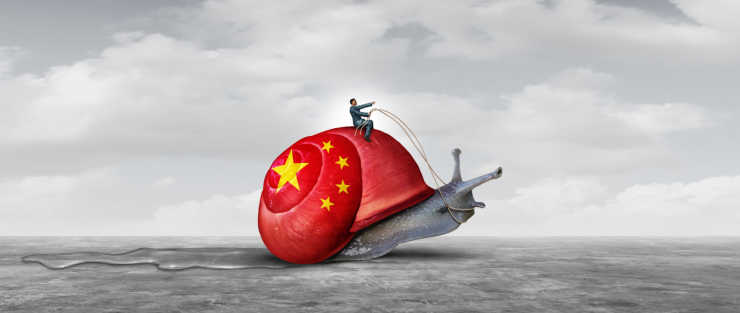At Foreign Policy, Howard W. French discusses the changing sentiment among China analysts who now believe that the country’s growth engine may be broken. He writes:
Herd sentiment among pundits and others who analyze the direction of Chinese affairs has always been subject to sudden shifts. In the late 1970s and early ’80s, China was mostly a neat geopolitical story in the West: Mao Zedong had died, and what perished with him was China’s long-standing focus on autarky and decades of overt opposition to the capitalist world order. Western leaders and media cheered on the rise of the smiling and friendly-seeming Deng Xiaoping. Though they were hopeful about China’s economic growth, few expected the country to rapidly emerge as an economic competitor of the first order.
In the 1990s, this began to change in a remarkably brief period of time. By the early 2000s, China increasingly came to be viewed as an unstoppable economic juggernaut.
A new shift has occurred recently, and if anything, it has been even more dramatic. Here and there, and then suddenly almost everywhere, opinion shapers and experts have been saying that the great Chinese growth engine is broken and that the country is no longer destined to lead the world in the decades ahead.
Among specialists who follow China most closely, the two main causes cited for this new conventional wisdom have been known for years. The first is that China’s growth model has been overreliant on policies such as financial repression and extraordinary levels of investment. Here, repression has nothing to do with the usual political usage of the word. It means, rather, that the state controls domestic interest, exchange rates, and capital outflows in such a way that citizens receive little accrual or benefit from their high rates of savings. Instead, these are captured by the state and channeled into industries that are favored or prioritized by bureaucrats, including many that are state-owned.
Some of the problems that might arise from financial repression can seem apparent even to lay people. Bureaucrats tend to know little about business and are unlikely to be in the best position to make the smartest and nimblest economic bets about the industrial future. Some features of this setup may be less than obvious, though. When the state captures and invests the nation’s savings according to its own whims, capital becomes scarcer and more expensive for private investors. This also suppresses the domestic consumption that most mature economies depend on for growth. Finally, as the state channels more and more investment into industries of its choosing, average return on investment falls. China is now at the point where it must invest huge amounts of capital to produce each new dollar of economic growth, and everything points to this continuing to worsen.
The other big factor, by now almost universally cited by the new China skeptics, is the country’s dismal demographic situation. Every week seems to bring new stories about either the rapid aging of Chinese society or the growing reluctance of women and couples to have children. To be fair, the numbers are truly shocking.






